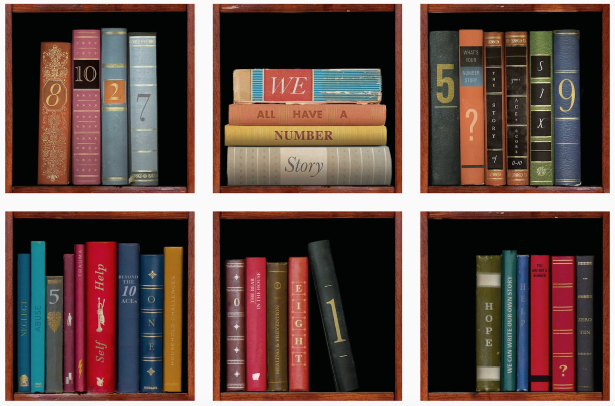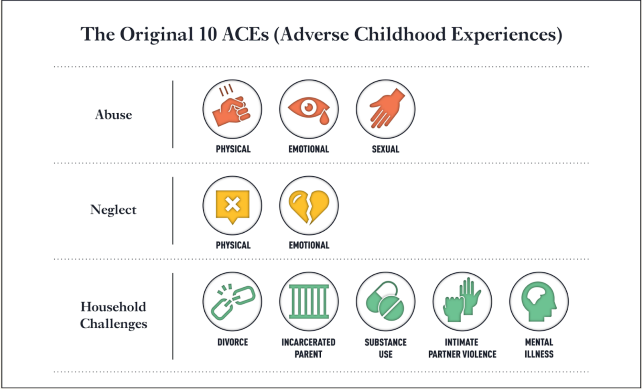By Brenna Parker, Think Round Fine Arts Online, May 19, 2021

@mynumberstory via Instagram
Everyone has a rare story to tell. When it comes to our Number Stories, the numbers revealed for some individuals may be the same, however, our stories behind these are in every way unique.
ACEs are Adverse Childhood Experiences. The story of each number is the story of one’s ACE history, which is a score measuring the number of ACEs that occurred before the age of 18. The term comes from a 1997 study published by the CDC and Kaiser Permanente, which studies ten types of stressful or traumatic events that fall under one of three categories: abuse, neglect, and household challenges (numberstory.org).

The Original 10 ACEs, (numberstory.org)
It turns out that ⅔ of us have at least one ACE directly affecting us. Most people are either directly or indirectly impacted by adverse childhood experiences, in one way or another. That is why it is crucial to share stories and unite together in order to alter the way society responds to the damaging impacts of ACEs and toxic stress.
If you haven’t calculated your ACE score yet and would like to, you may do so here.
By sharing our own number stories and hearing the voices of those around us, we are reminded that we are not a number on a chart, and the number that we are assigned is simply the entry point in navigating each individual’s personal story. Most importantly, the number we have does not outline the rest of our lives; we are in control of where this number leads.
Dr. Nadine Burke Harris is a Canadian-American surgeon, pediatrician, and might be most well known for the progress she has made in advocating that adverse childhood experiences have more detrimental effects on individuals than health professionals had considered before. See here for more information on how childhood trauma is carried through to adulthood, from Dr. Nadine Burke Harris herself.
NumberStory.org is launching its first national public awareness campaign, My Number Story. If you would like to share your own story or follow the stories of others, you can connect through social media using @MyNumberStory #NumberStory and #MyNumberStory.
ACEs can happen to us, but they don’t have to control the way we live our lives. Each person is unique and has the power to decide where our number, our story, and our life will lead.
If you or anyone you know needs trauma recovery, Think Round Inc, a 501(c) nonprofit offers a health and wellness trauma incident reduction program called Turning the Tide of Trauma presented by the Ardicare Foundation. This program is free, confidential, non-medical, non-diagnosing, non-religious, and confidential. This program also gives one the opportunity to join its innovative peer-to-peer community and, if interested, take part in facilitator training. For high school students, TRI’s partner, the Ardicare Foundation, offers Community Leadership Classes teaching inner and outer communication and critical thinking skills that build resilience and emotional intelligence. Contact info@thinkround.org or see Turning the Tide of Trauma for more information.
Sources:
Dr. Nadine Burke Harris

Brenna Parker is Digital Analytics and Marketer at Think Round Fine Arts Online.


Comments (0)